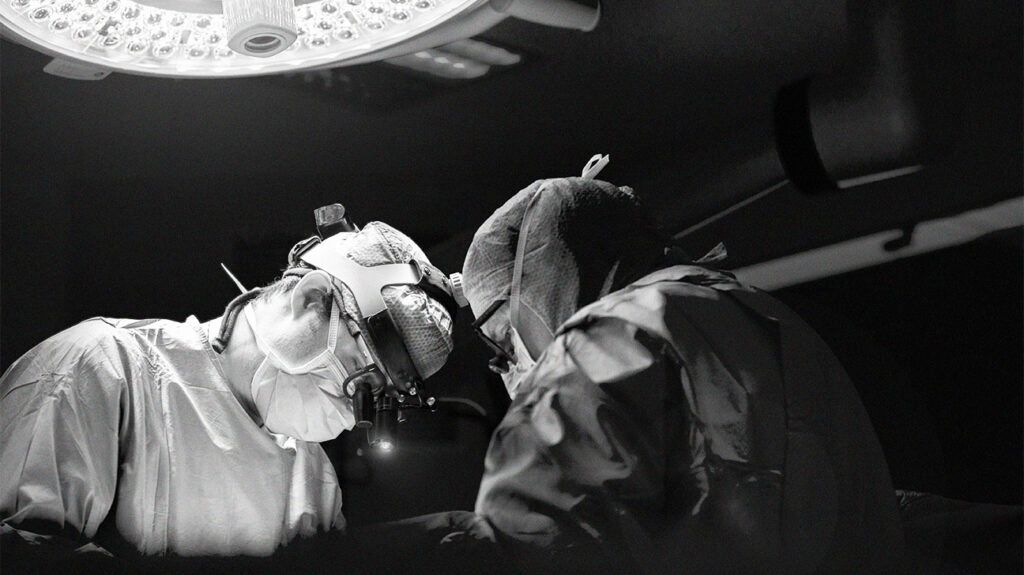Although open-heart surgery can be life saving, it may lead to long-term side effects such as chronic pain, memory difficulties, and emotional or psychological challenges.
Open-heart surgery is one of the most invasive surgeries a person can undergo. While the immediate goal is often to correct life threatening heart issues, the long-term consequences of such a significant intervention can be varied and complex.
To help reduce long term side effects, doctors recommend healthy lifestyle choices and effective aftercare.
In this article, we look at the long term side effects of open-heart surgery, how to minimize these risks, and coping strategies.

Every year, more than
Open-heart surgery is a major procedure that usually involves opening the chest by cutting through the sternum, before temporarily stopping the heart. The surgery can have lasting effects on various aspects of a person’s health and well-being for weeks or even months afterward.
The likelihood of long-term complications depends on several factors, including the following:
- the heart condition a person has
- the exact procedure
- the person’s overall health
Below, we explore some of the most common long-term side effects of this type of surgery.
Cognitive changes and memory problems
Some people experience difficulties with memory, concentration, and problem-solving skills after heart surgery.
Doctors call this postoperative cognitive dysfunction (POCD). It is the
POCD
- Short-term POCD: This usually involves temporary problems with thinking and memory that last up to 6 weeks, affecting 20% to 50% of people who undergo open-heart surgery.
- Long-term POCD: This is less common, occurring in about 10 to 30% of cases. It involves more gradual effects on a person’s mental abilities that can show up about 6 months after surgery.
Chronic pain and discomfort
Many people may experience chronic pain in the chest, shoulders, or back following open-heart surgery.
This pain is often due to the healing of the sternum and surrounding tissues. In some cases, the pain may persist long term, lasting for
PSPS can affect a person’s quality of life and may be challenging to manage. A doctor may recommend physical therapy, medication, or other interventions.
Emotional and psychological changes
The experience of undergoing a major surgery can lead to changes in a person’s mental health.
Although doctors typically expect emotional effects to resolve within a few weeks after open-heart surgery, some people may experience significant long-term psychological challenges after the procedure, including:
If a person experiences ongoing mental health issues after a surgery, it is best they speak with a doctor.
Several strategies can help minimize the risk of side effects after open-heart surgery, including:
- Follow-up care: Regular follow-up appointments with a cardiologist and primary care physician are crucial. These visits help doctors to:
- monitor the person’s heart health
- detect any early signs of complications
- ensure that medications and lifestyle changes are effective
- Cardiac rehabilitation: Cardiac rehabilitation programs typically include supervised exercise, education on heart-healthy living, and counseling. Participating in a cardiac rehabilitation program can:
- help improve physical fitness
- reduce the risk of future cardiac events
- support emotional well-being
- Healthy lifestyle choices: Adopting a heart-healthy lifestyle can help reduce the risk of further complications. A person can try:
- eating a balanced diet
- engaging in regular physical activity
- avoiding smoking, if applicable
- managing stress as much as possible
- Medication: A person will need to take any medications that doctors prescribe to support their heart health. These medications may include:
- blood thinners
- cholesterol-lowering drugs
- medications to manage blood pressure
Recovering from open-heart surgery is a long-term process that involves both physical and mental challenges. This section includes some strategies to help people cope after surgery.
Physical recovery
The following can help with physical recovery:
- Gradual exercise: Following recommendations from a healthcare professional, a person may start with light activities and gradually increase intensity. Walking or gentle cycling can help build strength and improve cardiovascular health. A cardiac rehabilitation program can help people safely build up their fitness levels.
- Pain management: Proper pain management is essential. This may include over-the-counter pain relievers, prescription medications, or alternative therapies, such as acupuncture or physical therapy. It is important to check with a healthcare professional before trying any new pain relievers or pain relieving techniques.
- Rest and sleep: Some people may have difficulty sleeping due to pain after heart surgery. However, rest is essential to help the body heal. Learn more about sleep issues after surgery.
Mental recovery
The following can help support mental health:
- Counseling and support groups: Speaking with a mental health professional or joining
a support groupTrusted Source for people who have had heart surgery can provide emotional support and coping strategies. - Mindfulness and relaxation techniques: Practices such as meditation, deep breathing, and progressive muscle relaxation can help manage anxiety and stress.
- Setting realistic goals: Recovery after surgery can be slow, and setting small, achievable goals may help people maintain motivation and a positive outlook.
In this section, we answer some common questions about the long-term effects of open-heart surgery.
Does open-heart surgery change a person?
Open-heart surgery can lead to significant physical and emotional changes. Following surgery, people may experience shifts in their outlook on life, relationships, and mental health. While some changes may be challenging, others may bring a renewed sense of purpose and gratitude.
What happens 10 years after open-heart surgery?
Many people continue to live
How long does it take to mentally recover from open-heart surgery?
Mental recovery varies widely among people who undergo open-heart surgery. Some
Emotional support, counseling, and coping strategies are important for mental recovery.
What is the life expectancy of a person with bypass surgery?
The life expectancy of a person after bypass surgery depends on several factors, including:
- age
- overall health
- lifestyle choices
Cardiovascular health resources
Visit our dedicated hub for more research-backed information and in-depth resources on cardiovascular health.
While open-heart surgery can be a life saving procedure, it comes with the risk of significant long-term side effects. While cognitive changes, chronic pain, and emotional challenges after this type of procedure are common, people can take proactive steps to minimize these risks.
By engaging in regular follow-up care, participating in cardiac rehabilitation, and adopting a healthy lifestyle, many individuals can lead fulfilling lives after surgery. Emotional and psychological support is also essential for managing the mental aspects of recovery.


